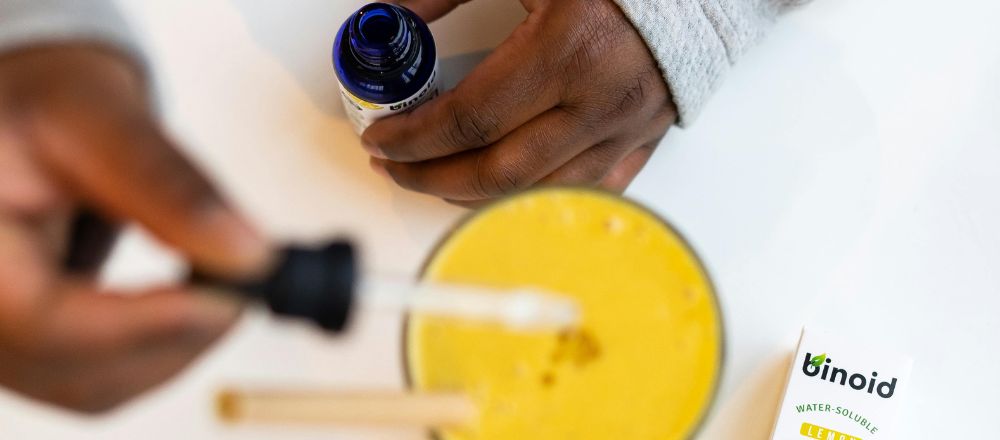CBD and Sleep Apnea: Can It Help Improve Your Sleep?
- Posted On: October 12, 2024
- Posted By: admin

Sleep apnea is a common yet serious sleep disease that affects millions of individuals worldwide. Sleep apnea is characterized by disrupted breathing during sleep. It can cause a variety of health problems, from mild sleepiness during the day to more serious conditions like high blood pressure, heart disease, and stroke. The gold standard for treating sleep apnea is continuous positive airway pressure (CPAP) therapy, however many patients find it difficult or uncomfortable. As a result, people are becoming more interested in complementary therapies like cannabidiol (CBD). But if you have sleep apnea, can CBD help you sleep better? Let’s investigate.
What is Sleep Apnea?
An irregular breathing pattern that occurs while you sleep is called sleep apnea. There are mostly two kinds:
1. Obstructive Sleep Apnea:
It is the most prevalent type of sleep apnea. It is characterized by an obstruction in the airway, frequently brought on by the throat muscles relaxing.
2. Central Sleep Apnea:
The brain is unable to properly communicate with the respiratory muscles when it is in this state.
Even after what they believe to be a full night’s sleep, people with sleep apnea may wake up exhausted, snore loudly, or gasp for air.
What is CBD?
The cannabis plant has a substance called CBD (cannabidiol), which doesn’t get users “high” like its more well-known counterpart, THC (tetrahydrocannabinol). The potential therapeutic benefits of CBD, such as its ability to manage pain, inflammation, and anxiety, have made it more well-known in recent years. Its effects on sleep disorders, such as insomnia and, more recently, sleep apnea, are also being studied.
How can CBD help with Sleep Apnea?
While research on CBD and sleep apnea is still in its early stages, there are several potential ways it might help:
1. Reducing Stress and Anxiety:
Anxiety and stress are common in people with sleep apnea, especially in the evenings and before bed. It could be challenging to get to sleep and stay asleep as a result. Some people’s anxiety has been demonstrated to decrease with CBD, which may result in more peaceful sleep. CBD may help reduce mental stress, which can exacerbate the symptoms of sleep apnea, by encouraging relaxation.
2. Anti-inflammatory properties:
Inflammation, particularly in the upper airway, is frequently associated with sleep apnea. Because of CBD’s well-known anti-inflammatory properties, better breathing during sleep may result from lessened airway irritation.
3. Managing pain:
The inability to sustain a peaceful sleep due to chronic pain will lead to sleep apnea. People with sleep apnea, especially those whose condition is made worse due to physical pain, may benefit from CBD because it is well-known for its ability to relieve pain.
4. Promoting REM Sleep:
Studies have shown that CBD may lengthen overall sleep duration and enhance REM sleep (the sleep state during which most dreams take place). Improving REM sleep is essential for enhancing the quality of sleep for those who have sleep apnea.
5. Research and Scientific Backing:
In-depth scientific research on CBD has yet to be conducted, despite anecdotal data indicating it may be helpful for sleep problems, including sleep apnea. There is still much we don’t know about how CBD especially impacts sleep apnea, despite encouraging early studies on the topic. Uncertainty surrounds the precise mechanisms behind the potential regulation of sleep-wake cycles and enhancement of sleep quality by cannabinoids such as CBD, as indicated by a 2019 study published in Current Neuropharmacology.
That being said, it’s important to remember that CBD may not be able to treat sleep apnea on its own, especially if the illness is brought on by actual airway blockages. It might still be required to use more involved therapies like surgery or CPAP.
Should you try CBD for Sleep Apnea?
It is imperative that you speak with your healthcare professional before using CBD for sleep apnea, particularly if you are currently receiving therapy. Not everyone should use CBD because it may interfere with some drugs.
CBD may not be a stand-alone treatment for sleep apnea, but it may enhance other therapies by lowering pain, inflammation, and anxiety. This could improve sleep quality and general well-being.
Conclusion:
CBD is becoming more and more popular as a natural treatment for many different health conditions, including sleep apnea. Its potential to encourage relaxation, lessen inflammation, and ease discomfort making it a viable treatment for patients with sleep apnea, even though further research is required to demonstrate its efficacy in this particular illness. As usual, consult your physician before including CBD in your regimen.